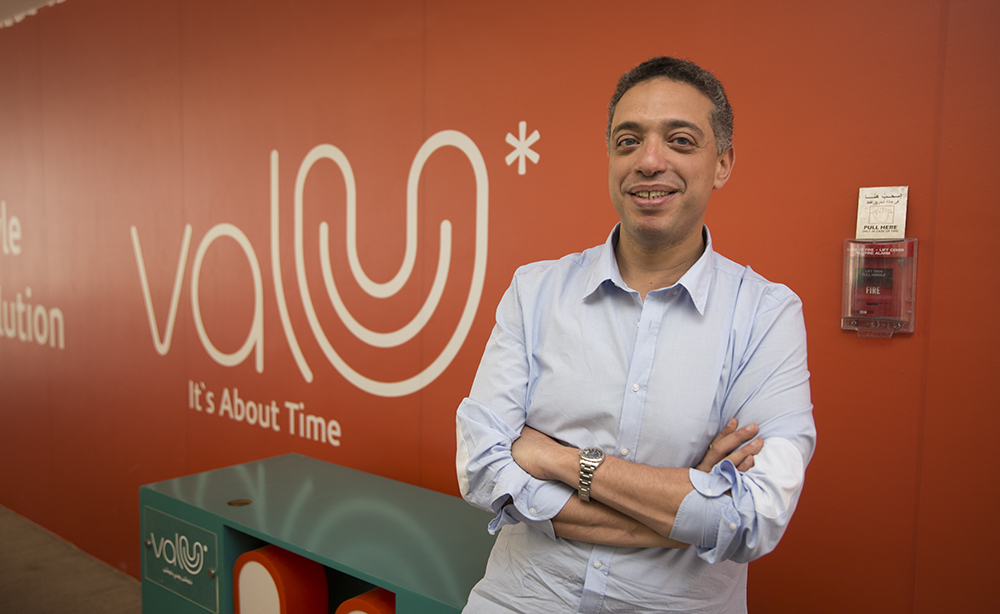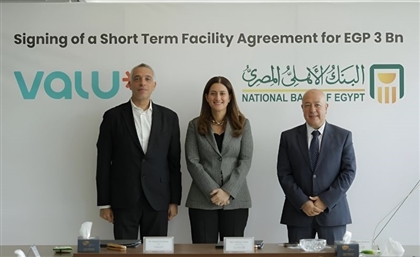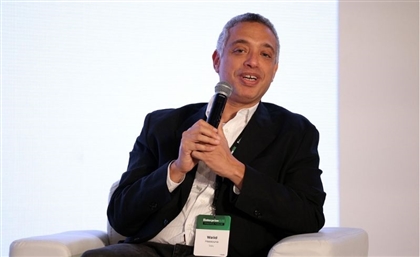Behind the Scenes of EFG Hermes Finance's Brand New Incursion to FinTech: valU
84% of Egypt's 100 million-strong population is still unbanked. The financial powerhouse's CEO, Walid Hassouna, explains how their FinTech platform is creating a mobile-based network to promote financial inclusion.

Imagine a future where tapping on your phone screen is all it takes to buy a scooter; a future where coins are obsolete and bank notes a rare find. While this is a consolidated reality in regions like Western Europe, Egypt’s cash-based society is still facing a rocky road towards technologies that allow financial inclusion. According to the World Bank, the Middle East has the lowest level of bank account penetration in the world: only 14 percent of the population. In Egypt, the Central Bank estimates that 84 percent of the country’s 100 million-strong population are still unbanked.
But within the MENA’s most populated country also lies a promising fact: internet penetration is as high as 108 percent, and smartphones abound. “Internet penetration in Egypt is around 108 percent, and smartphones represent around 40 percent of this population,” says EFG-Hermes Finance’s CEO, Walid Hassouna.
The financial entity, an offspring of one of the country’s largest financial corporations, EFG Hermes, has just launched valU, a FinTech mobile application that allows users to purchase products from a network of merchants through instalments. “There are revolutionary changes in the market for payments today; people are not using cash anymore. So we wanted to allow people to use their phones to make payments, where the process of applying and getting a credit limit approved happens entirely through their phones,” Hassouna explain, unveiling the plan to include those who do not have a credit card. “People can choose when and how they want to pay; we usually give people 59 days of grace; so they can even enjoy buying something now and pay in 59 days,” he adds.

EFG-Hermes Finance’s CEO, Walid Hassouna, explains the app was launched in 2017 with an investment of EGP 250 million.
Over the past 30 years since its launch in Egypt, EFG Hermes has grown spectrum of financial services that include investment banking, asset management, securities brokerage, research and private equity to the entire region, with 2,900 employees in the country. This year, they delved into the entrepreneurial realm, as their technology accelerator EFG-EV Fintech joined forces with Egypt Ventures to support the country’s brimming startup founders through the Falak Accelerator programme, which recently graduated its first batch of 16 startups out of 30. Now, valU comes to add a FinTech solution to EFG Hermes Finance, the company that has taken on the corporation’s non-banking finance activities, including EFG Hermes Leasing and Tanmeyah Microfinance.
Its offices, located in Cairo’s satellite tech hub Smart Village, are bustling with young employees trying to crack the code on Cairenes’ financial preferences - though they plan to extend it to Egypt’s populous governorates very soon. “We are now covering Cairo, Giza, Alexandria and the North Coast, and our aim is to launch two other governorates by the end of the year, Hassouna explains. "We are working with startups and young teams to develop the product architecture. Recently, we started looking at new startups to revamp our app into something friendly and appealing to younger generations,” he says. Launched in December 2017 with an investment of EGP 250 million, the platform allows consumers to use their smartphones to buy from a network of over 700 stores and pay in instalment programmes ranging from 3 to 24 months.

ValU's offices are bustling with employees, a part of the 2,900-strong force the financial group has grown in Egypt.
Against the big, orange wall that presides the room, a sign reads “a lifestyle-enabling solution,” crystallising the proposition their new app sets off to create. “We want people to be able to choose the amount of instalments, and how they are going to pay them,” he says, indicating that the company has built a growing network of stores, from auto parts, to IKEA furniture, to mobile phones. “We now introduced something new: clients will be able to install a solar panel in their house,” he anticipates. “We don’t have a catalogue of products, as we are not trying to imitate e-commerce platforms. We are the replacement of a conventional card, so we are providing people with shopping limits, available on their phones in a very transparent manner, and with flexibility of payments.”
In the last couple of years, FinTech innovations have entirely disrupted the financial sector, from apps that allow people to buy cryptocurrencies, to platforms enabling users to split bills or monitor savings. In fact, 2018 has seen an unprecedented amount of funding in FinTech globally, and 2017 closed with a total $16.6 billion investments deployed across 1,128 deals to VC-backed FinTech companies, according to a study by CBInsights. "There are a lot of revolutionary changes in the market around us, and we wanted to get people to use their mobile phones as a method of payment. We wanted to provide everything that banks would do, with the exception of collecting deposits,” the executive says.“Our strongest point is that we require minimal documentation; people can come with a driver license and ID and get a credit limit on the spot,” he exemplifies.

“I have worked in banking for a long period of time, and it’s a very difficult decision for a bank to make instant approvals," Hassouna says.
According to Hassouna, rapid credit approvals is one of the biggest challenges financial entities have. “I have worked in banking for a long period of time, and it’s a very difficult decision for a bank to make instant approvals. We developed on our own algorithm to provide something that in the market is missing; banks usually need 2 to 7 days to give approval to a customer, and in the case of credit cards, they take 21 to 24 days to receive it through the mail. We’ve shorten this period to 20 minutes, from the moment you download the app until you can make the first payment. That’s the most important feature we’re bringing in."
“One challenge we face is that people download the app and they expect to see products. But we are not an e-commerce site; we are a method of payment that you can use inside physical stores; and you don’t have the products on the credit cards or inside their wallets, for example. That’s why we are working on partnerships with some of the biggest e-commerce players in the market,” he adds.
The company has also partnered with Uber and the Ministry of Investments and International Cooperation to extend an auto-loan programme for Uber partners, leveraging the technological edge provided on both platforms. And eventually, seeking to lead the charge in a movement that will reshape a future that is entirely mobile-enabled. “Now there are a lot of wallets in the market, banks and operators are issuing wallets; everyone is moving actually towards payments, loans, and credit on mobile phones,” Hassouna says.
Photography and videography by @MO4Network's #MO4Productions.
Photographer: Sherif Abdelazim.
Videographer: Ahmed Watany.
The content of this article has been sponsored.
- Previous Article Dubai's Jabbar Brings A New Child Into The World: Kambio Ventures
- Next Article 3 Agritech Startups Creating a Farming Revolution in Egypt






















